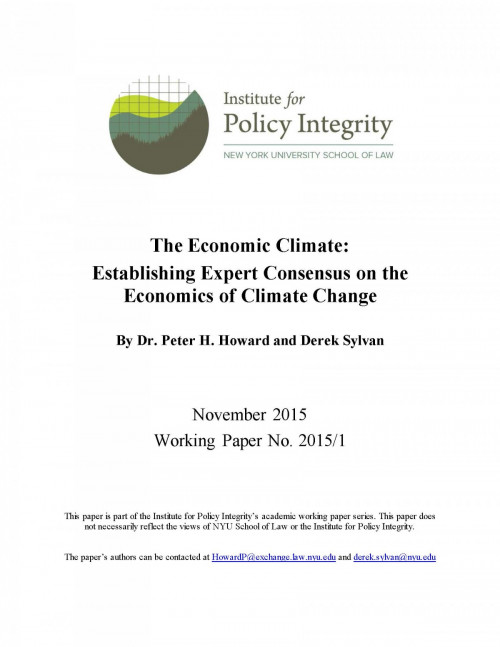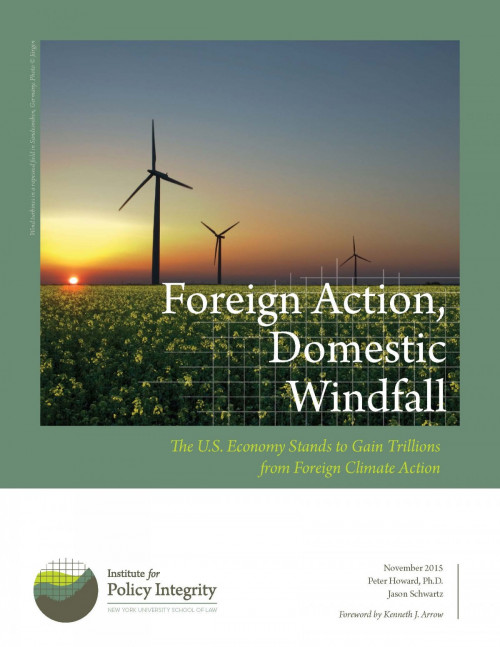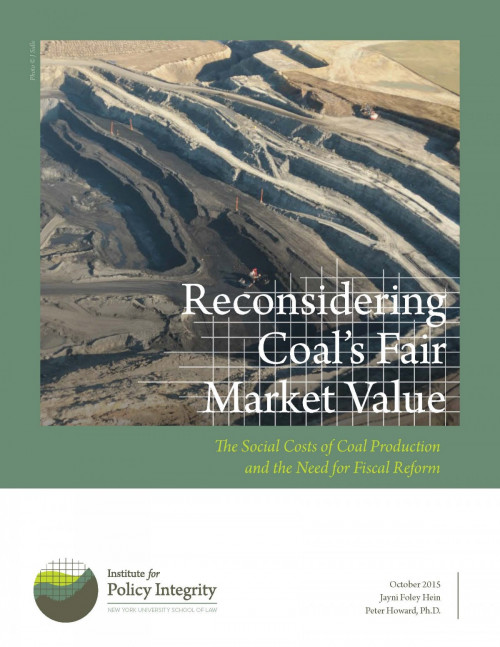-
Comments on Oil and Gas Methane Emission Standards
We submitted public comments on the EPA on its proposed New Source Performance Standards for methane and volatile organic compound (VOC) emissions from the oil and natural gas sector.
-

The Economic Climate
Establishing Expert Consensus on the Economics of Climate Change
This working paper offers detailed analysis of our survey of economic experts on climate change issues. We surveyed all those who published an article on climate change in a highly ranked economics journal over the past 20 years. The survey focused on estimated climate impacts and appropriate policy responses, and the results reveal several areas where expert consensus exists on these issues.
-
Hein Joins Experts to Discuss Oil-by-Rail
Jayni Hein, our policy director, presented today at a national conference on oil-by-rail policies, “Oil Train Response 2015: Community Risks & Solutions,” in Pittsburgh, Pennsylvania.
-

Foreign Action, Domestic Windfall
The U.S. Economy Stands to Gain Trillions from Foreign Climate Action
Global actions on climate change have already helped the United States avoid more than $200 billion in direct economic damage. Trillions of dollars more for the United States are at stake in securing commitments for future emissions reductions from foreign countries.
-
Comments on New York State Energy Policy
We recently submitted comments on New York State’s Reforming the Energy Vision (REV) initiative
-
Revesz Testifies at House Hearing on Clean Power Plan
Richard Revesz testified at today’s House Energy & Commerce Committee hearing, “EPA’s CO2 Regulations for New and Existing Power Plants: Legal Perspectives.”
-

Reconsidering Coal’s Fair Market Value
The Social Costs of Coal Production and the Need for Fiscal Reform
Coal mining on federal lands accounts for more than 40 percent of all coal produced in the United States. But outdated policies, longstanding loopholes, and prevalent environmental externalities keep American taxpayers from receiving their fair share of value from federal coal leases.
-
Comments on Truck GHG Emissions
We recently submitted two sets of comments to the EPA and National Highway Traffic Safety Administration on their greenhouse gas standards for trucks.
-
Comments on Aircraft Greenhouse Gas Emission Standards
We recently submitted comments to the EPA regarding their endangerment finding and advance notice of proposed rulemaking on greenhouse gas emissions from aircraft.
-
District of Columbia Energy Policy Comments
We recently submitted comments to the District of Columbia Public Service commission (PSC) regarding their investigation of “technologies and policies that can modernize our energy delivery system.”
